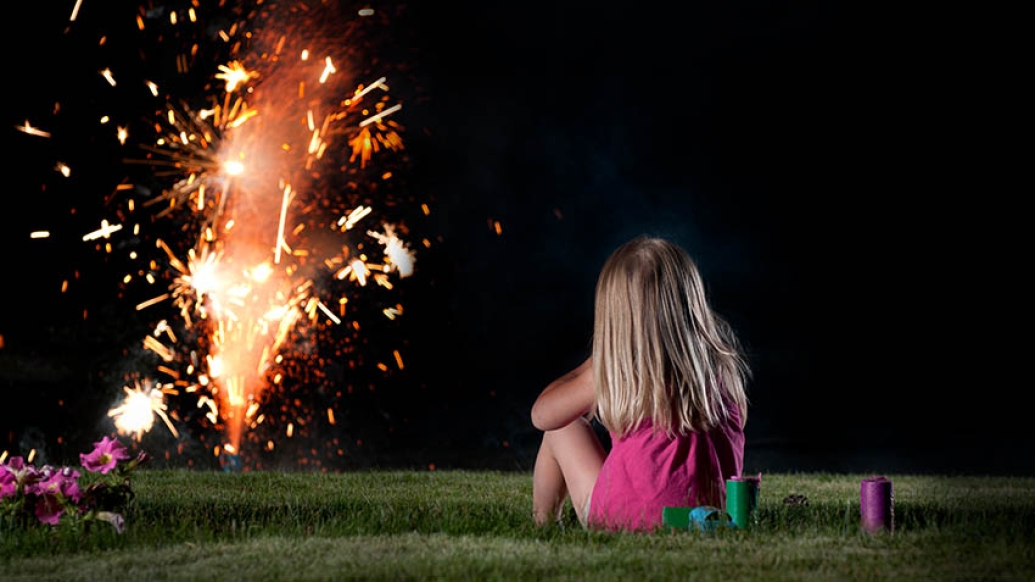Is your town’s fireworks display canceled due to COVID-19? If you’re now thinking about setting off fireworks at home, use this advice to keep your family safe while enjoying the sights and sounds of the holiday.
7:00 AM
Author |

This article was updated on June 25, 2020.
Summer is here and Independence Day is upon us. It's a great time to celebrate with family and friends and see fireworks.
As an emergency physician, I see plenty of fireworks injuries each year that could easily be avoided. And while usually my number one tip is to leave the fireworks show to the experts, a considerable amount of those large shows are canceled this year due to the COVID-19 pandemic.
If you're now planning to put on a small show for your family and friends at home, remember to responsibly social distance, have your viewers wear masks and remind yourself of the proper, and safe, ways to use fireworks with these quick tips:
1. Buy your fireworks from a reputable source.
Don't buy fireworks that aren't clearly labeled and packaged. Fireworks should have clear safety instructions on them. Buying from a reputable source can also decrease your chances of purchasing fireworks that have been tampered with or altered.
MORE FROM MICHIGAN: Sign up for our weekly newsletter
2. Keep your lighting area clear.
Make sure spectators are a safe distance away from the spot you intend to light the fireworks. It's also smart to check the area for anything flammable that may be easily ignited by a stray spark.
3. Follow the instructions.
Each firework has certain lighting requirements. Reading the instructions can minimize your chances of starting a fire or injuring yourself.
4. Have a way to put out small fires or duds.
It's a good idea to keep a fire extinguisher and bucket of water nearby should one of your fireworks create a small fire or simply not light properly.
5. Never relight a malfunctioning firework.
Consider that firework a loss! Your safety and life are not worth trying to relight a firework that may not be functioning properly and could self-combust.
6. Don't look into a dud.
If a firework doesn't seem to ignite or shoot off properly, don't mess with it. Many people are injured when looking into a firework to see what's wrong and then it happens to explode. Leave the dud alone, and at the end of the night safely spray it with water from a distance to make sure any stray flames are suppressed.
7. Remember: Sparklers are not a safer choice.
Parents tend to think sparklers are a fun and safer way for children to enjoy the holiday, but that couldn't be further from the truth. Sparklers are essentially an open flame and burn at an extremely high temperature. Add in young children running around with one in their hand and the possibility of injuries skyrockets.
Like Podcasts? Add the Michigan Medicine News Break to your Alexa-enabled device or subscribe for daily updates on iTunes, Google Play and Stitcher.

Explore a variety of health care news & stories by visiting the Health Lab home page for more articles.

Department of Communication at Michigan Medicine
Want top health & research news weekly? Sign up for Health Lab’s newsletters today!





